What
Telling Our Stories to the World was a collaborative creative arts project implemented by the Queensland Writers Centre (QWC) at the State Library of Queensland and supported by the Local Government Association of Queensland (LGAQ).
The Telling Our Stories to the World project engaged regional communities across Queensland to discuss the challenges of climate change through creative expression and storytelling.
The QWC introduced a pilot project in 2019 for Telling Our Stories to the World, working with LGAQ and Queensland Health to encourage remote communities in Central West Queensland to tell their own stories in their own way.
Growing on the outcomes of this successful pilot project, QWC collaborated again with the Queensland Government through the Department of Environment and Science (DES) and LGAQ, to encourage communities, businesses, schools, families and individuals to reflect on how they are adapting to increasingly severe and frequent extremes of weather.
By helping them tell their own stories through a range of creative media and opportunities, including writing and photography, this place-based creative community development project aimed to create a momentum that could be sustained through the ongoing statewide activities of QWC.
The project vision was to develop an arts-led creative process to be the catalyst for an innovative and resilient Queensland that manages the risks and harnesses the opportunities of a changing climate including drought, floods, cyclones, storms and bushfires.
The project activities empowered participants by strengthening existing creative skills, developing new ones, and fostering individual and community self-esteem.
Throughout the project, QWC, DES and LGAQ worked closely with local community champions to recognise and celebrate the voices, lives, work and commitment of regional Queenslanders.
Building community identity, connections and social capacity through this project helped to increase resilience in the face of climate change.
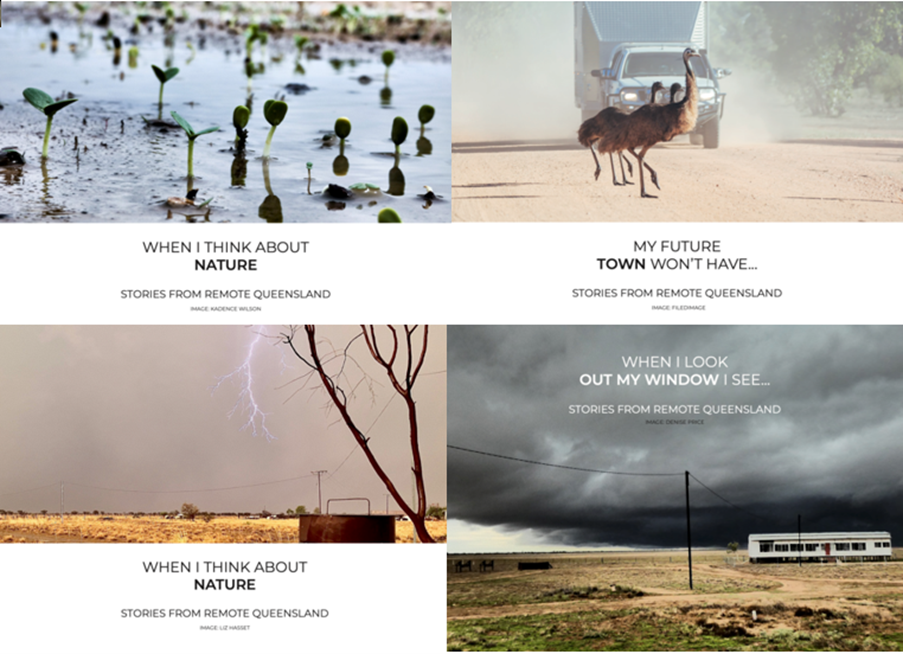
Project activities:
Writing Friday
Writing Friday is a QWC initiative that runs out of QWC located at State Library of Queensland and in libraries and community centres across Queensland to engage communities in writing and storytelling.
As part of Telling Our Stories to the World these writing sessions provided inspiration for story-making and to help contextualise individuals’ stories of adaptation.
Postcards
To help inspire regional communities to write about their climate change experiences, QWC created a series of postcards, and commissioned local photographers and artists to provide photographs and images.
Postcards were distributed to a range of venues, interest groups and events, targeting regions across the state.
Community members could respond to the writing prompt on the front of the postcard, or simply share something about themselves, and their lives, in the context of resilience and adaptation to climate change.
The prompts were framed to invite responses that considered how they might already be adapting, or how they will become more resilient in the face of future climate change events.
Author Workshop Tours
Established Queensland writers and tutors toured the regions and conducted creative writing and story-making workshops with target groups.
The Telling Our Stories to the World workshops encouraged participants to integrate their own stories, past, present and future, into a broader narrative of climate change and resilience.
Each writer provided prompts and supported participants to tell their stories in their own way.
School Visits
Telling Our Stories to the World also engaged students and teachers in workshops designed to develop an awareness of the localised effects of climate change.
These workshops allowed children and teachers to think about how climate change is affecting their environments through personal experience and observations, without telling them how or what to think.
WQ Magazine
QWC’s quarterly magazine for members, Writing Queensland (WQ), produced two themed editions to support Telling Our Stories to the World.
The 2022 WQ edition of Telling Our Stories to the World was sent to more than 1,800 members and all participating councils.
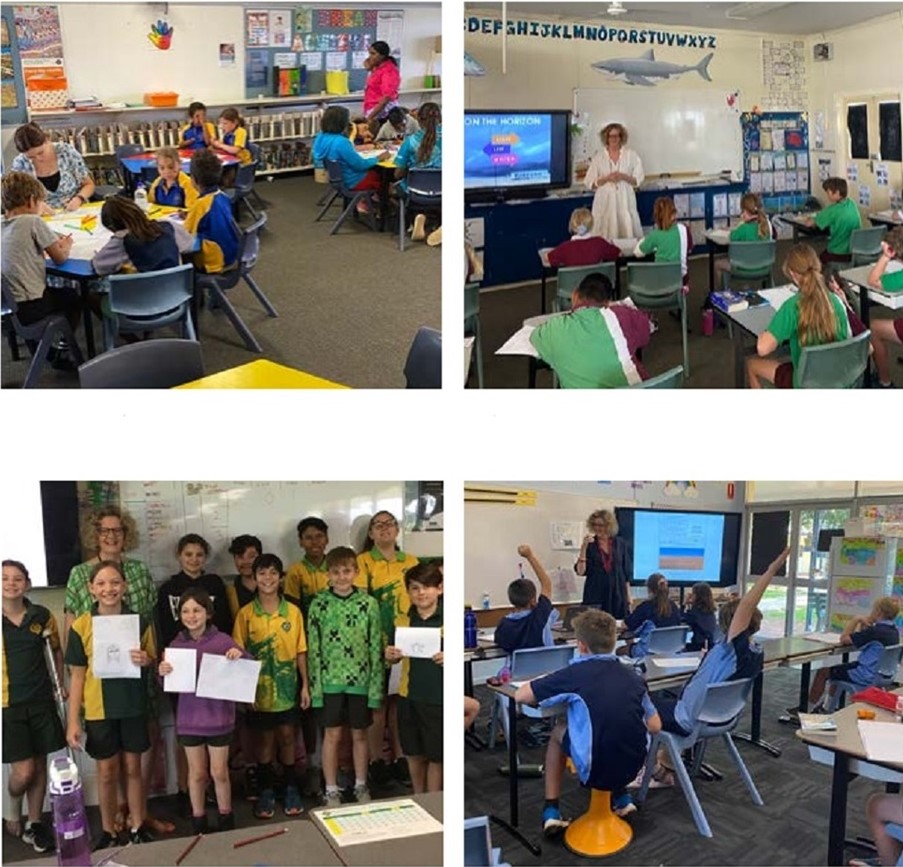
When and where
1 February 2021 to 1 April 2022 in:
- Far North Queensland (Cairns City Council, Cassowary Coast Shire Council, Cook Shire Council and Douglas Shire Council)
- North Queensland (Burdekin Shire Council, Charters Towers Regional Council, Mackay Regional Council, Townsville Shire Council)
- North-West Queensland (Burke Shire Council, Carpentaria Shire Council, Cloncurry Shire Council, Etheridge Shire Council, Flinders Shire Council, McKinlay Shire Council, Richmond Shire Council, Mt Isa Shire Council and Richmond Shire Council)
- Central Queensland (Gladstone Shire Council, Livingstone Shire Council and Rockhampton Shire Council)
- Wide Bay Burnett (Bundaberg Regional Council, Cherbourg Community Council, Gympie Regional Council and South Burnett Regional Council)
- South-East Queensland (Brisbane City Council, Gold Coast City Council, Logan City Council, Redland Bay Shire Council and Scenic Rim Regional Council)
- Central Western Queensland (Barcaldine Shire Council, Barcoo Shire Council, Winton Shire Council and Longreach Regional Council)
- Darling Downs (Toowoomba Regional Council and Southern Downs Regional Council)
Key stats
- 2,000 postcards distributed across Queensland
- 880 received back by the Queensland Writers Centre
- 100 of these postcard stories were sent to other regions, states and countries
- 8 workshop writers were sponsored to attend the Australian Society of Authors (ASA) workshop ‘Writing Climate Fiction'
- 790 participants attended from Far North Queensland, North Queensland and Northwest Queensland
- 8,220 kilometres were travelled
- Furthest location travelled to was Camooweal
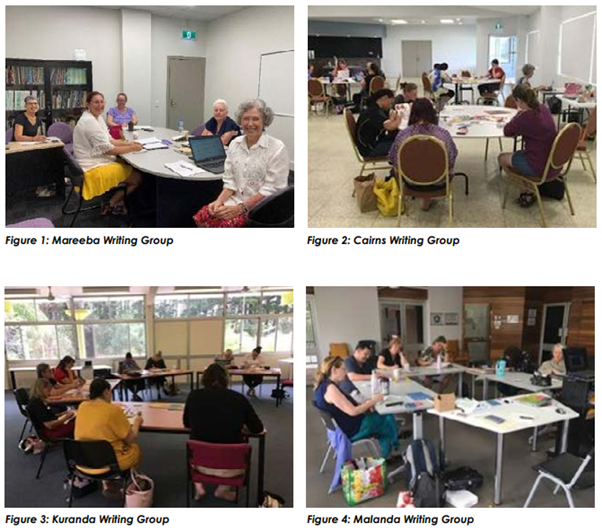
Investment
The Queensland Government provides the Queensland Writers Centre with $1.28 million funding through the Organisations Fund 2022 – 2025.
Telling Our Stories to the World project also received funding through the Queensland Government Department of Environment and Science’s SAP+ program.
Outcomes
Despite some challenges created by COVID-19, Telling Our Stories to the World delivered on its objectives.
Activating Queensland Places and Spaces
New Writing Fridays were embedded as an ongoing QWC activity.
Driving Social Change and Strengthening Communities
Community members of all ages, representing the key beneficiary groups and all target regions, have engaged with opportunities to reflect on how they are adapting to climate change and weather extremes.
The project encouraged individual empowerment and community connections while identifying the vulnerability of local businesses in rural areas.
Community Groups who benefited from Telling Our Stories to the World include:
- Human health and wellbeing professionals
- Tourism operators and employees
- Small and medium business owners and employees
- Agricultural owners, managers and workers
- Local ecosystems and their supporters
- Emergency management personnel
- Industry and resource sector managers and workers
- Children and young people
- Older people.
Postcards was embedded into QWC’s regular activities as a community engagement strategy, which will continue to encourage reflection and dialogue about climate change adaptation.
Sharing our Stories and Celebrating our Storytellers
QWC established a foundation to continue to build on its aim to foster a vibrant culture of reading, writing and storytelling across Queensland.
The pilot Telling Our Stories to the World, delivered by QWC in 2019, demonstrated that author workshops were a powerful means for building community connectedness, collaboration and optimism through writing and story-telling.
One writer, who participated in Telling Our Stories to the World, joined QWC as a staff intern.
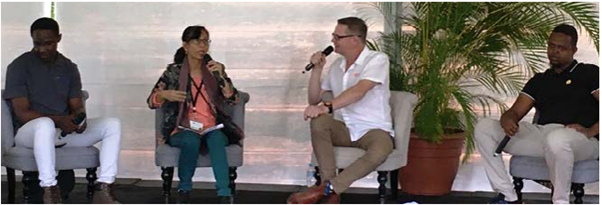
Learnings and reflections
Telling Our Stories to the World became an important catalyst to expanding the hybrid nature of writing as it enabled QWC to deliver projects quickly, cost effectively and to an increased number of remote writers.
A perfect example of this hybrid format was Postcards, a popular, non-threatening way for people of all ages to share thoughts, reflections, memories, hopes, fears and mini narratives.
Writing Friday enabled QWC to build relationships with established talented writers around the state who can assist and inspire those who are emerging in the writing field.
With more time, QWC would like to engage with more diverse voices, including Aboriginal and Torres Strait Islander individuals and communities, refugees and asylum-seekers, and others without English as their first language.
There is awareness that language barriers and anxiety about authority have prevented some groups from accessing information and services needed for preparedness, response and recovery phases of recent natural disasters.
These communities are often the same populations that have experienced trauma, including intergenerational trauma, and require more support for their wellbeing and mental health in order to be resilient, not just stoic, in the context of climate change.
What next
QWC will seek future funding opportunities and partnerships to expand several of the project activities which proved highly effective in engaging communities in dialogue about climate change adaptation.
QWC, DES and LGAQ would also like to engage more small-to-medium enterprises in considering climate change adaptation in a positive, constructive light, through creative narrative activities.
Both organisations will seek to continue engaging very remote communities such as Diamantina Shire, Bulloo Shire, Paroo Shire, St George, and Goondiwindi.
Queensland Health identified these areas as being hard hit in recent years with mental health issues and initiatives like Telling Our Stories to the World would continue to champion resilience in these areas.
Writing Friday is now running in Bundaberg, Cairns and Gympie with the intention to establish more in north and northwest Queensland and the Wide Bay Burnett, providing more opportunities for connection and creativity.
In 2023 QWC partnered with Inala Wangarra to run Writers Wednesday workshops.
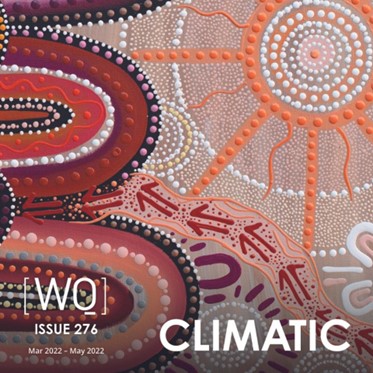
Find out more
Queensland Writers Centre’s Telling Our Stories To The World website
This case study was first published 11 Jan 2023